Arupo Tree in Independence Square, Quito, Ecuador
After our visit to the museum on the equator, I will now take you to the historic town center of Quito.
Quito was established by the Quitu tribe way back in the first millennium. By 980 CE the Quitu were conquered by the Caras Tribe. Between 1534 and 1556, the Spanish invaded the city, executed the ruling tribe’s leader, named the city San Francisco de Quito, and established Roman Catholicism in the city. Drawing on the native tribes for slave labor, the Spanish began construction only weeks after the invasion. The oldest religious building in all of South America is the San Francisco Convent; its unadorned architecture stayed true to its Franciscan roots:
The attached San Francisco church is a blend of Spanish and Mudéjar architecture and the focal point of the cobblestone square:
The plaza is on the site where the palace of the Incan ruler, Auqui Francisco Tupatauchi, once existed and it was the location where indigenous tribes traded goods for centuries:
The white domed church is La Compañía de Jesús:
From here the steep streets lead to the hill El Panecillo with the statue of the Virgin of Quito:
Just around the corner from San Francisco Plaza is the Jesuit church La Compañía de Jesús with its beautiful baroque columns :
After 300 years of colonial rule, Quito gained independence from the Spanish in 1822 under the command of Simón Bolívar. The city was annexed to Gran Colombia until it dissolved in 1830 when Quito became the capital of Ecuador.
If you are wondering where we saw that beautiful flowering tree in the first photo, it's called the Arupo tree and we saw it in full bloom in Independence Square:

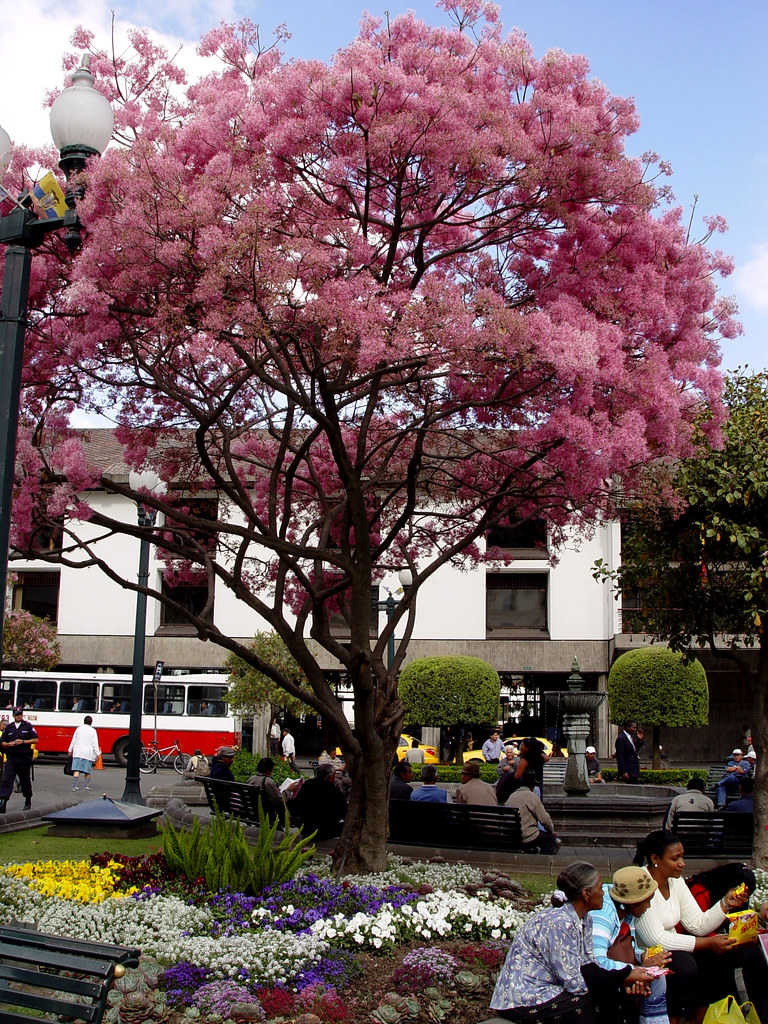
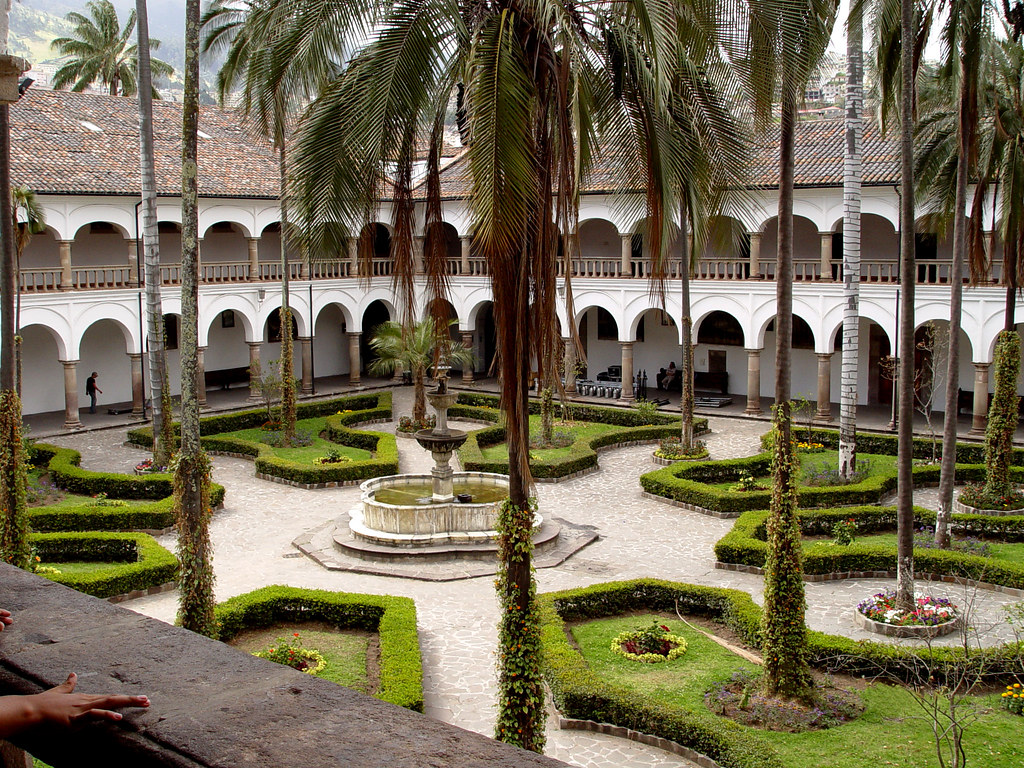
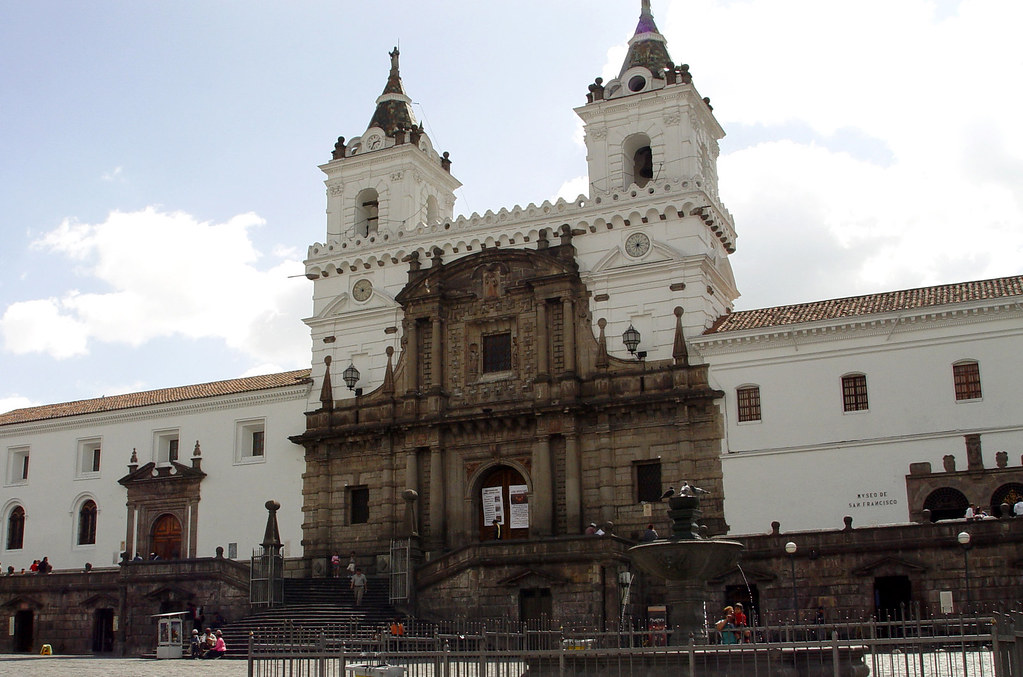
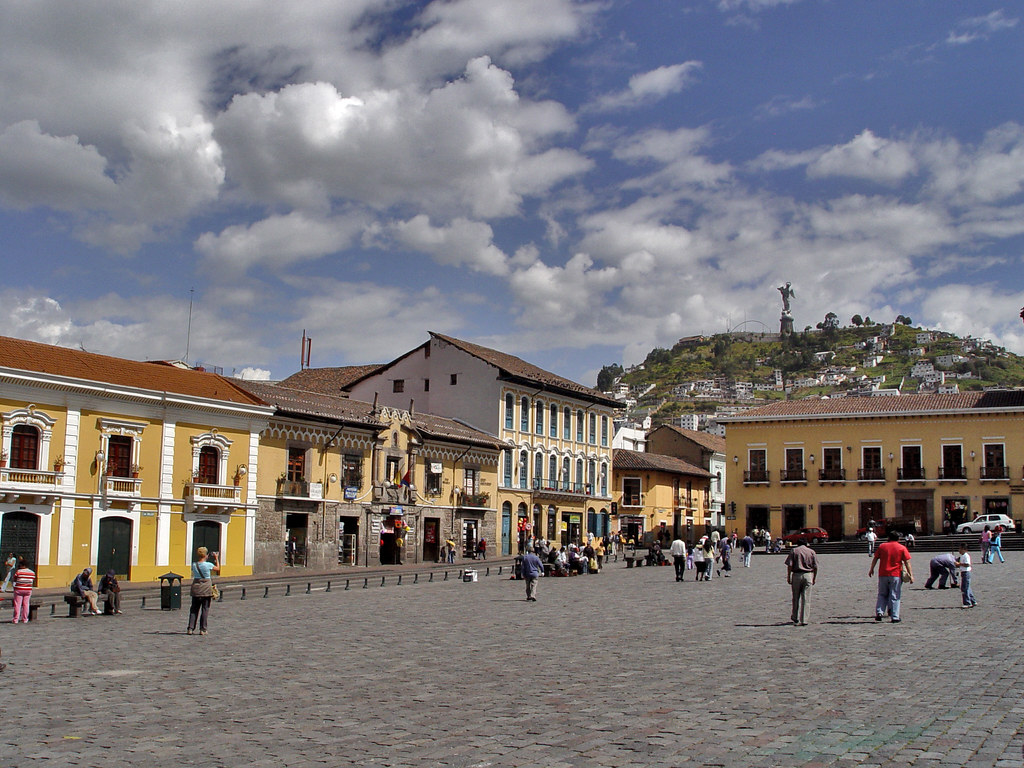
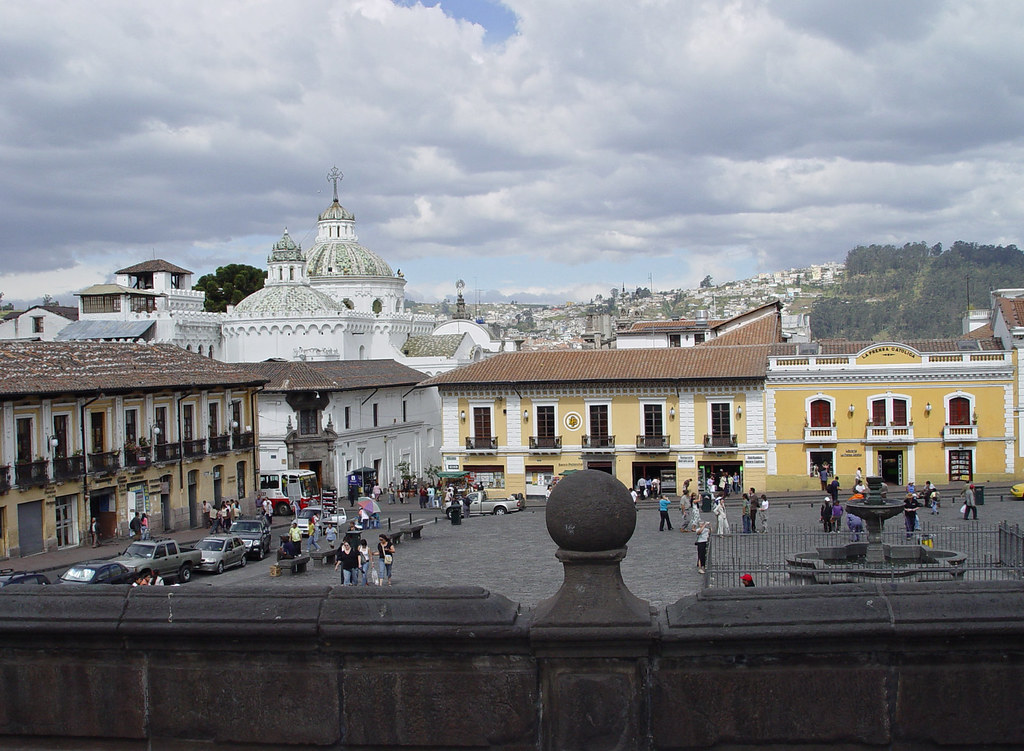
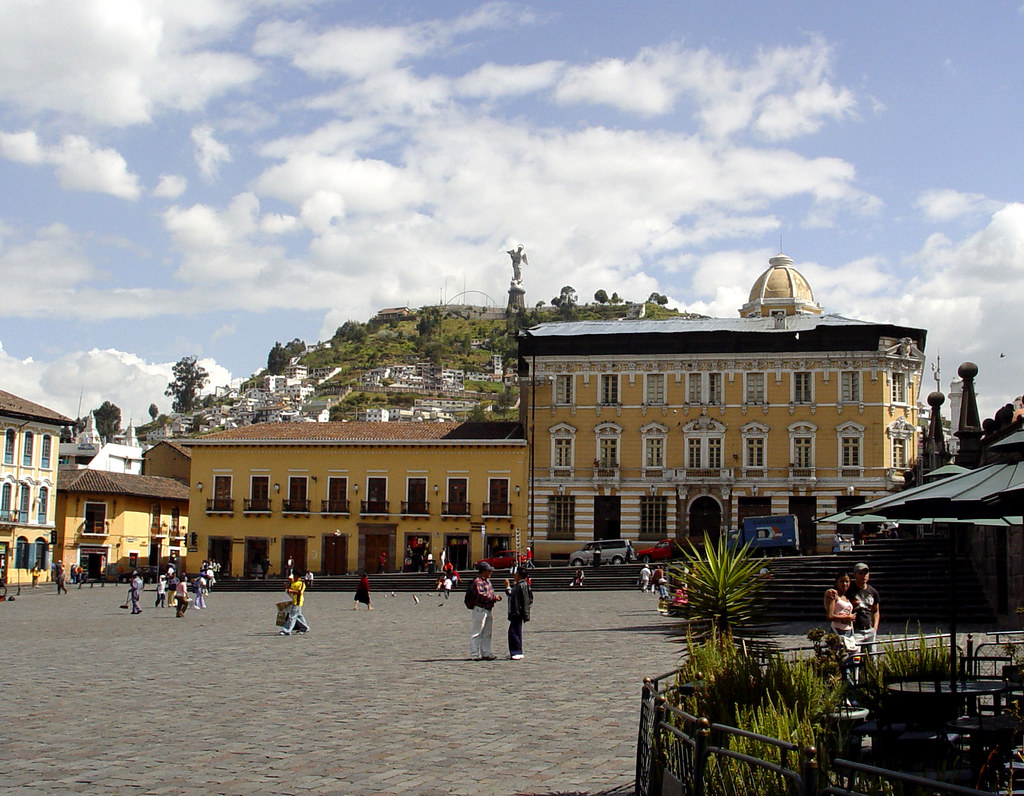
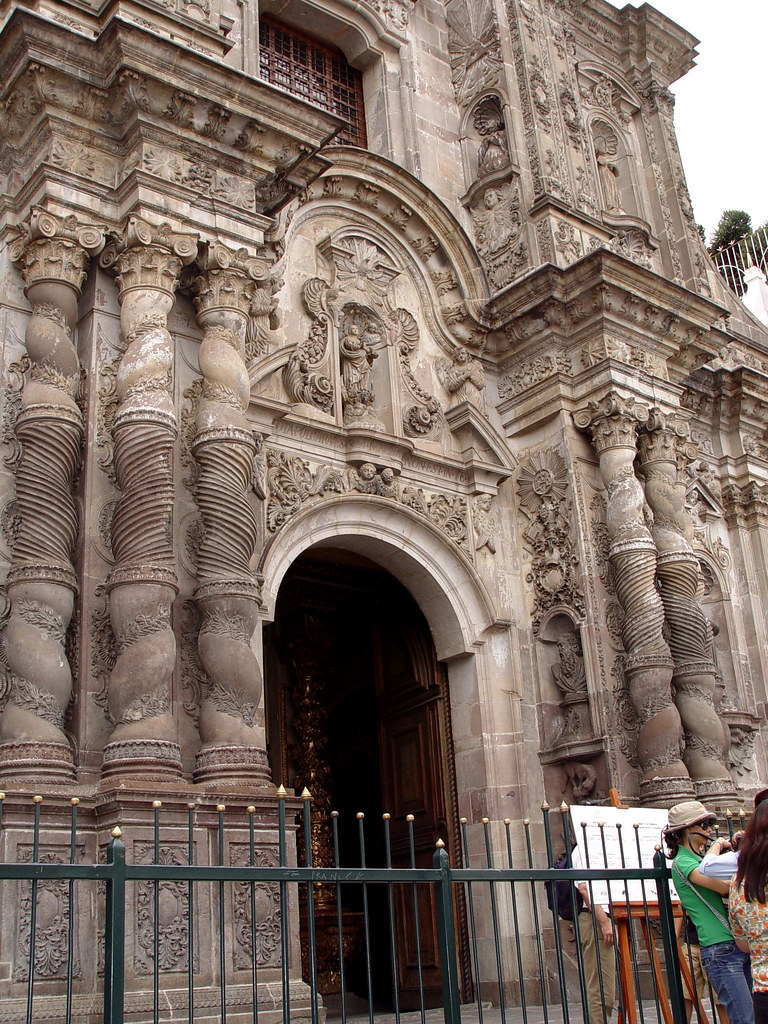
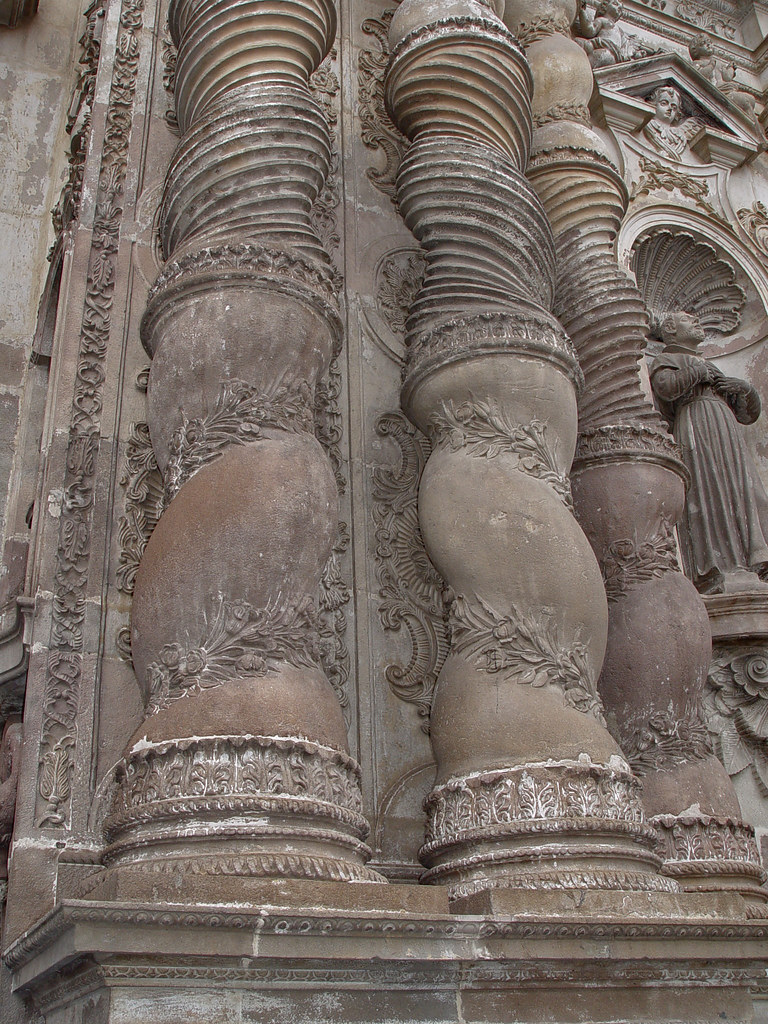
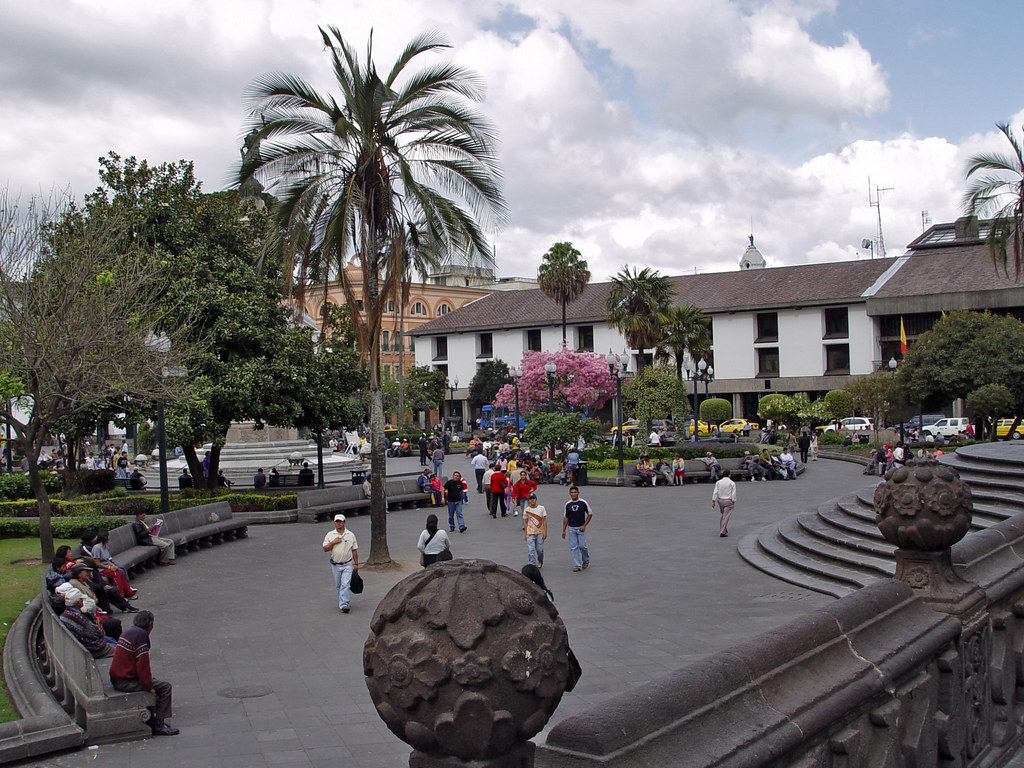
11 comments:
These photos are amazing. The pink tree reminds me of cotton candy. The Cathedral is so interesting and the colors of the buildings reminds me of Venice.
Central and South America are parts of the world where I have got relatively little knowledge of. I therefore am so happy to read and watch your pictures from there.
Thank you, great and beautiful work!
Kacper
It is a fascinating post, very well written and with spectacular photos. It is ever so sad that all this beauty was built on the back of enslaved Indians. It beggars belief, doesn't it? In Havana we also have a convent called San Franciso de Asis. It's much smaller than this building but it is just as magical. I went to many a classical concert there whilst still living in Havana. Many thanks for such a beautiful post.
Greetings from London.
My goodness, I do enjoy your passion for traveling. You've taken me on so many wondrous armchair journeys already. That tree. Oh, that tree!
Simply astonishing. I had no idea or even a hint that Quito looked like this. A dreamscape. So European, yet with its own character. Magical realism. I swear, in my next life I will find a way to travel more...
The architecture and those columns are so appealing.
I never knew that Quito was named San Francisco de Quito. We have a co-sponsored study abroad program at the university there - Universidad de San Francisco de Quito, but I didn't realize the city itself was also named that.
Splendid architecture and yes, like Cuban says, it is a bit sad when we realize all these building works had surely been done in tough conditions.
i love the Arupo tree !
Great pictures!
I loved Quito so much I had thought (years ago) of teaching English there. Did you make it to Banos?
Great photos! I love the convent the most. It looks like a resort. Thanks for your nice comments lately. Very much appreciated :)
Great photos, they make me wish I was there. Astounding detail in those columns.
Dear MAWB,
Cotton candy is a perfect description! I loved the yellow of the buildings also.
Dear Kacper,
I'm so glad you came along!
Dear Cuban,
Thank you for pointing out that these buildings were constructed by slave labor. I will modify my copy to add this important fact.
A classical concert in a convent constructed by the Franciscans sounds like a dream!
Dear Relyn,
Believe it or not, I was the only one who was going on and on about that tree. As you can see from the photo, everyone was positively nonchalant about its beauty.
Dear Gabby,
I was also startled at the depth of the European influence in the architecture. There's no time like the present Gabby; you still have a long life ahead of you :)
Dear Paris,
Thank you - a true compliment coming from you. xoxo
Dear Ruth,
I love knowing that my San Francisco and Quito have that in common. I'm told that Quito has several fine universities.
Dear Castle,
It is very sad indeed. I will be discussing this further when I take you to Cusco in Peru.
Dear Postcards,
No, sadly we did not make it to Banos. I'm sure that was a mistake. Teaching in Quito would have been life altering.
Dear Jemm,
The convent was so serene - I hope the photo conveyed this.
I'm glad you appear to be doing better.
Dear FogBay,
Maybe you can visit Quito and the Galapagos Islands, now that you have reclaimed some time after FogBay :) Thanks for the visit!
Post a Comment